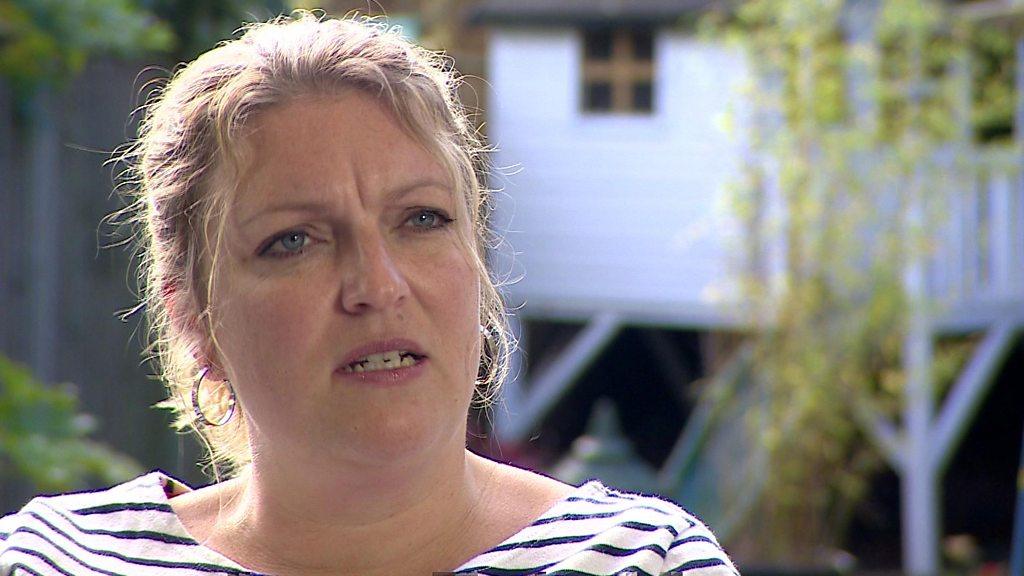Stalkers facing longer jail terms for torment caused to victims
- Published

The maximum sentence for stalking available to courts in England and Wales is to rise from five years to 10.
Announcing the change, justice minister Sam Gyimah said: "Stalkers torment their victims and can make everyday life almost unbearable."
If the offence is racially or religiously aggravated, the current seven-year maximum will go up to 14.
Labour said ministers had "changed their mind" under pressure, having previously opposed tougher penalties.
In 2015, 194 people were convicted of stalking in England and Wales and were, on average, sentenced to 14 months in jail.
The government is expected to bring in the changes in an amendment to the Policing and Crime Bill,, external when it is debated in the Commons on Tuesday. The bill, which is in its final stages in Parliament, is likely to become law in the coming weeks.
It will also raise the maximum sentence for harassment from five to 10 years, and similarly from seven to 14 if it is racially or religiously aggravated.

Stalking victim: I was living in hell

Helen Pearson was stabbed in the neck with a pair of scissors by her stalker in 2013
Helen Pearson's five-year ordeal started with slashed bicycle tyres.
Then the text messages, phone calls and threatening letters began. A dead cat left on the doorstep.
"It just slowly kind of escalated," says Helen Pearson, from Devon. "You are constantly the whole time living on a knife edge.
"Every time you had a letter, it would get sent off for fingerprints. They'd find no fingerprints, so it would be logged and it would just carry on and on and on."

Mr Gyimah said the sentences were being doubled so these "awful crimes can be properly punished".
'Proper investigation'
But Labour said its amendment to the bill in the House of Lords in December, which would have doubled maximum sentences for the most serious offences, had been opposed by the government.
The amendment was approved by the Lords by 160 votes to 149 but 139 Conservative peers voted against.
However two Conservative MPs, Alex Chalk and Richard Graham, had campaigned to increase punishment for stalking. Mr Chalk introduced a private member's bill last year calling for the maximum sentence to be doubled.
Labour says there was a chance of a "sizeable rebellion" among Conservative MPs if the government sought to overturn the move when MPs debate it.
"Thankfully, under pressure, the Tories have changed their mind," said shadow justice secretary Richard Burgon.
"But more still needs to be done to ensure that victims of stalking feel confident enough that their complaint will be investigated properly when they first report it."
Last month, new stalking protection orders were introduced to protect victims - especially those targeted by strangers or colleagues - at the very earliest possible stage.
Police in England and Wales can now apply to the courts for an order before a stalking suspect has been convicted or even arrested.
A typical order might ban the suspect from going near the victim or contacting them online, and could also make them undergo treatment if they have a mental health problem.
The orders follow legislation introduced in 2012 which made stalking a specific criminal offence in England and Wales.
In Scotland, stalking is illegal under the Criminal Justice and Licensing (Scotland) Act 2010 and in Northern Ireland it is prohibited under the Protection from Harassment Order (NI) 1997.
- Published7 December 2016

- Published7 December 2016

- Published28 October 2016

- Published12 October 2016

- Published19 April 2016

- Published25 November 2012
